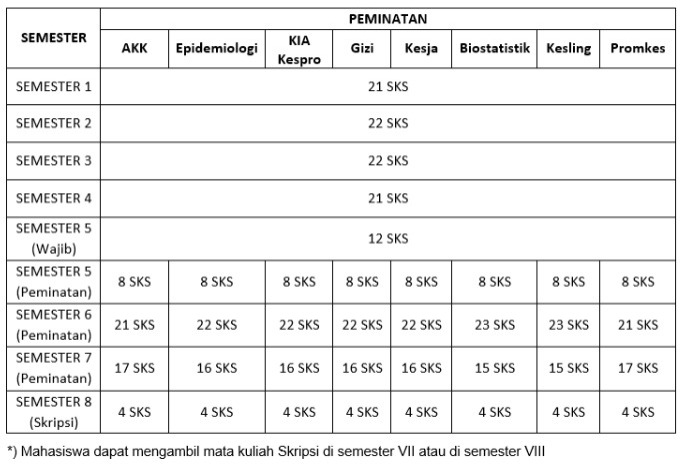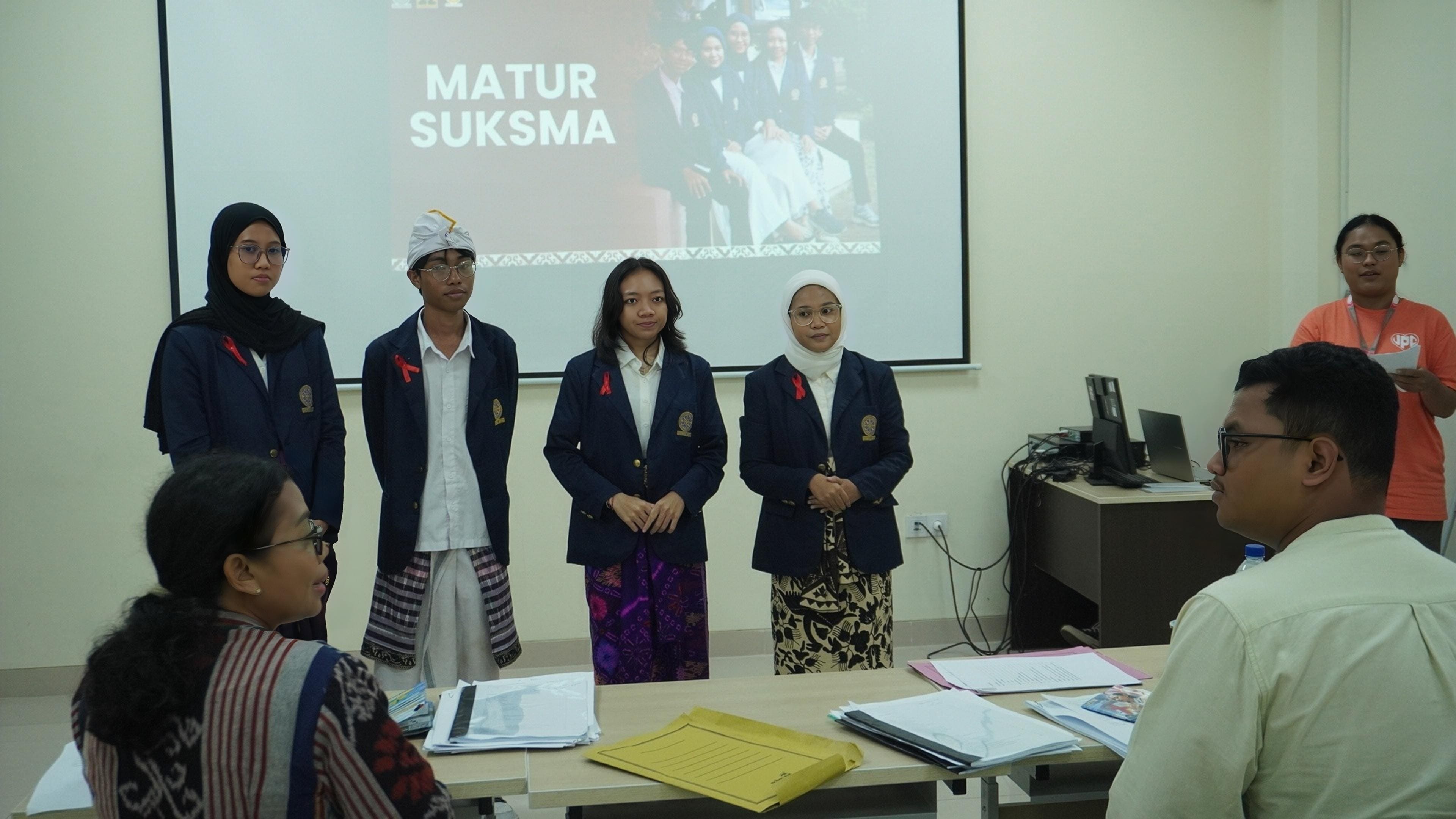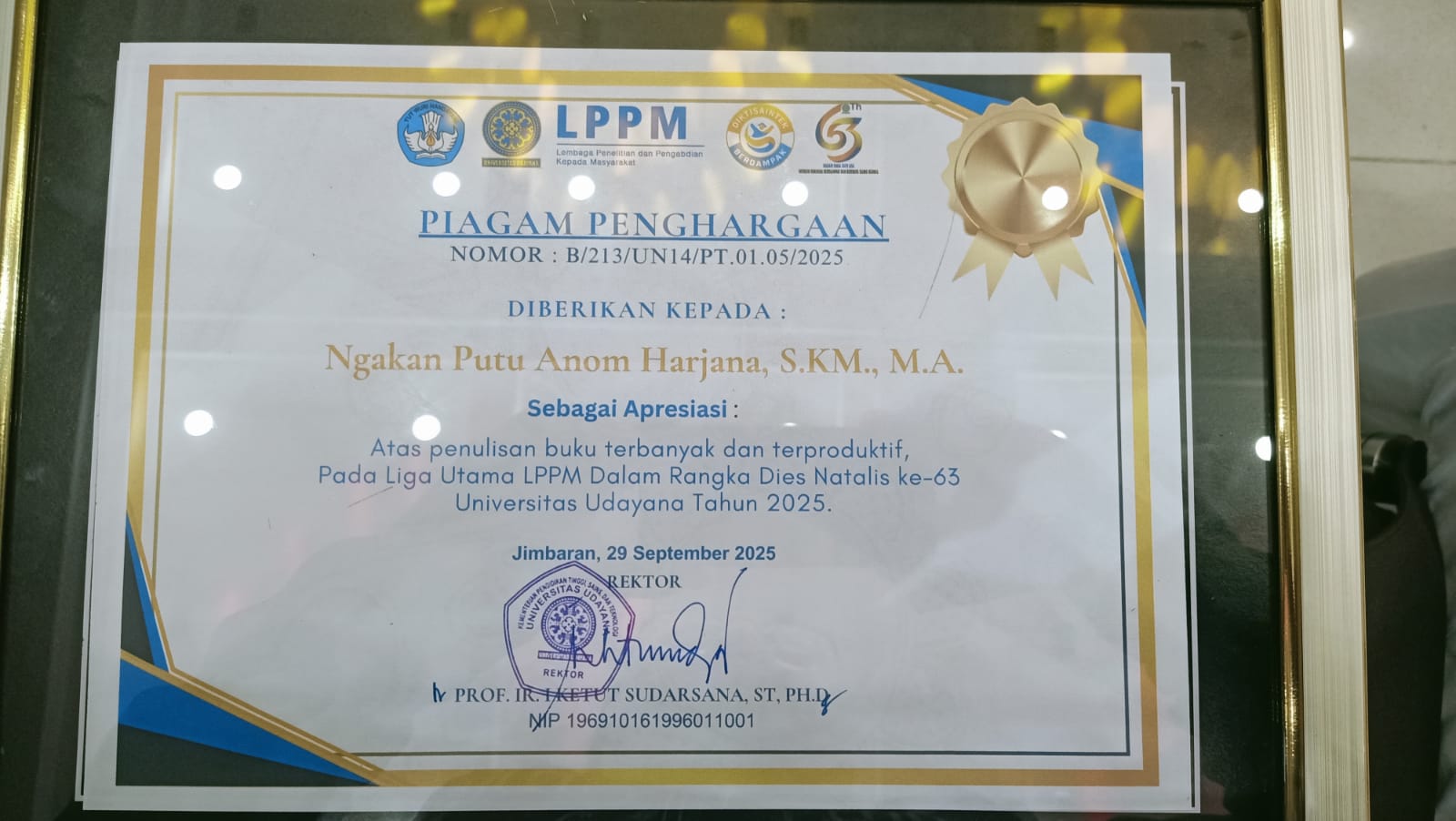Curriculum
Determination of Study Materials
In producing PSSKM graduates who are superior, independent and cultured both in terms of attitudes, knowledge, general skills and special skills, there are several study materials prepared by PSSKM. The PSSKM study material is built from 8 main pillars of public health, research capabilities and characteristics of Udayana University and the formation of attitudes and values. The study materials in the Curriculum of the Undergraduate Public Health Study Program consist of study materials on the main compulsory national curriculum, local compulsory curriculum and curriculum supporting specializations, namely Health Administration and Policy, Epidemiology, Maternal and Child Health and Reproductive Health, Community Nutrition, Occupational Safety and Health, Promotion Health, Biostatistics and Demographics and Environmental Health.
The undergraduate program in KKNI is at the 6th qualification level. Study materials on PSSKM have been prepared referring to the description of graduate learning outcomes according to level 6 KKNI and have equivalence with qualification levels at level 6 KKNI and referring to the agreement of the Association of Indonesian Public Health Higher Education Institutions (AIPTKMI). In addition, the preparation of study materials also refers to learning outcomes which are the peculiarities or advantages of the study program, namely tourism health.
The integration of research results and community service (PkM) in the learning process is also part of developing the university curriculum. This can be seen from the use of research results and PkM carried out by lecturers into the learning contained in the Semester Learning Plan (RPS).
Courses and SKS point
The subjects of the Public Health Undergraduate Study Program are grouped according to the national curriculum listed in the Decree of the Minister of National Education No. 232/U/2000 and the Decree of the Minister of National Education No. 045/U/2002. PSSKM has a study load of 148 credits which is designed to be completed within 8 (eight) semesters. PSSKM provides flexibility to facilitate diversity of interests and talents through the selected Constitutional Court in order to explore several aspects of public health. The courses are distributed in a series of semesters during the study period of PSSKM graduates, which is 8 semesters. In semesters 1 to 4, students take all of the mandatory MKs, while in semesters 5 and 6, apart from attending the mandatory MKs, students also take mandatory MKs according to their respective interests. While in semester 7, students take 2 mandatory MKs, and choose several MK options, and in semester 8 students can take thesis MKs.
The distribution of courses per semester with their point is presented as follows:

Daftar Mata Kuliah Semester 1 - 5 (Wajib)
Daftar Mata Kuliah Semester 5 - 8 (Peminatan Administrasi dan Kebijakan Kesehatan)
Daftar Mata Kuliah Semester 5 - 8 (Peminatan Epidemiologi)
Daftar Mata Kuliah Semester 5 - 8 (Peminatan KIA dan Kesehatan Reproduksi)
Daftar Mata Kuliah Semester 5 - 8 (Peminatan Gizi Masyarakat)
Daftar Mata Kuliah Semester 5 - 8 (Peminatan Keselamatan dan Kesehatan Kerja)
Daftar Mata Kuliah Semester 5 - 8 (Peminatan Biostatistik dan Demografi)
Daftar Mata Kuliah Semester 5 - 8 (Peminatan Kesehatan Lingkungan)
Daftar Mata Kuliah Semester 5 - 8 (Peminatan Promosi Kesehatan)



FACULTY OF MEDICINE, UDAYANA UNIVERSITY